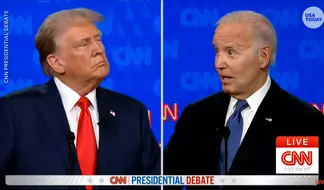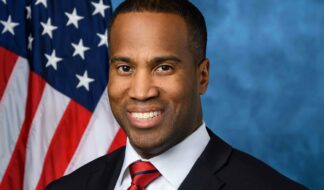By Diane Silver
Political IQ
Put down your coffee cup, step away from the computer if you're reading online, and take a deep breath. You won't like what I'm going to say next because here's the bottom line on marriage equality: We can't win.
It's not in our power to succeed at the ballot box, and that is where the fight will ultimately be decided. At least, we can't succeed if we keep campaigning the way we are now.
Money is a factor, but it isn't the biggest one. Our lack of grassroots organization also hurts, particularly because we're fighting Catholic, Mormon and fundamentalist Christian churches that have convenient tax-free offices (i.e. their congregations) in every town.
But that isn't the real reason we're losing.
The real reason is that too many voters still respond to lesbians and gays with a loud, resounding "ick." Even people who don't think homosexuality is immoral get queasy.
"This 'ick' is and always has been our Achilles heel, something our opponents skillfully exploit time and again," says Matt Foreman, former executive director of the National Gay and Lesbian Task Force. In a recent column about California's Proposition 8, Foreman talks about why the allegedly movable middle of voters breaks against us.
"The sad reality," he writes, "is that our movables get all wobbly – they blanch, they stammer, they get visibly uncomfortable – when faced with the reality of our couples, our families, our children. I've personally seen it dozens of times in focus groups, in one-on-one interviews, and in my own life and my friends' lives."
We all know the Big Ick exists. I suspect it even trumps religion in fueling anti-gay campaigns. Even the most religious sorts wouldn't buy into the big lie that The Bible demands bigotry if people weren't already certain that gay = ick. After all, even though the Catholic Church continues preaching against birth control, how many good Catholics still follow those teachings?
To date, we've tried countering the Big Ick by erasing ourselves from our own campaigns. Our commercials feature straight folks. Our talking points hammer at the idea that writing discrimination into a constitution is wrong. Our messaging is dispassionate, reasoned, pointedly heterosexual and tiptoeing around the reality that every vote for equality for queers is, in fact, a vote for queers.
Foreman, now at the Evelyn & Walter Haas, Jr. Fund, argues that we dare do nothing else. Other approaches have been floated, but they haven't tested well. In 2004 the Task Force filmed commercials featuring gay and lesbian couples "speaking from the heart., many with gut-wrenching stories," Foreman says. All 12 commercials were scrapped, however, when focus groups responded poorly.
"All we were able to get from a few people was a hint of empathy, but absolutely no movement on marriage," Foreman says.
All they got "was a hint of empathy?" What were they expecting? How can people raised in a culture where gay = ick change a lifetime of conditioning by watching six to 12 minutes of commercials?
I consider "a hint of empathy" to be a victory. We will not win at the ballot box until heterosexuals learn to empathize with us. Heterosexuals will never empathize with us if they don't get over their ick response. They won't stop feeling ick until they've seen the reality of our families and our children over and over again.
If the Task Force hadn't pulled those ads and had broadcast them and others like them for the next four years, what would have happened? Would Proposition 8 have passed in California? Would marriage equality now be banned in Arizona and Florida? Would adoption by lesbians and gays be banned in Arkansas?
We might still have lost – and lost big – in November. We do have centuries of ick to work through, but we might have made more progress. We might have been one step closer to teaching icked-out heterosexuals that the sight of a smiling child playing with his two moms is every bit as heartwarming as a boy with his mom and dad.
I agree with much of what Foreman writes. Neither he nor the Task Force are villains. Politicos of all sorts twist themselves into knots when they advise us. Emory University psychologist Drew Westen writes in his 2007 book "The Political Brain" that it is too early for our movement to push for marriage.
But Westen also charts a route out of our current mess when he talks about challenging other prejudices. He writes that political campaigns court defeat when they ignore these deep-seated attitudes. Even when voters consciously attempt to suppress their bigotry, those biases still shape their votes. In other words, pretending gay marriage isn't about gays won't make heterosexuals forget the Ick Factor.
"The question," Westen writes, "of when to avoid certain issues because 'the poll numbers look bad' has an unambiguous answer: never."









